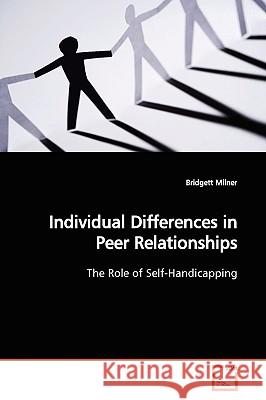Individual Differences in Peer Relationships » książka
Individual Differences in Peer Relationships
ISBN-13: 9783639171075 / Angielski / Miękka / 2009 / 116 str.
This book summarizes a series of research projectsinvestigating the effects of self-handicapping on anindividuals daily life by looking at participantspeer relationship and social interactions, reactionsof peers to self-handicapping behaviors, andself-presentation strategies. Self-handicapping, whendisclosed to peers, was predicted by previousresearch to negatively affect social networks. Theseries of studies presented in this book illustratesthat the effect of self-handicapping on peerrelationships is not nearly as straightforward asprevious research might suggest and not universallynegative. Self-handicappers were found, incomparison to low self-handicappers to have morefriends with whom less close relationships weremaintained. Self-handicappers were also found tospend, compared with low self-handicappers, a greateramount of time engaged in social activities withothers(particularly with males). Finally,self-handicapping as a behavior was displayed verydifferently depending upon the presence and gender ofothers and this change in display impacted theperception others formed regarding the behavior.











